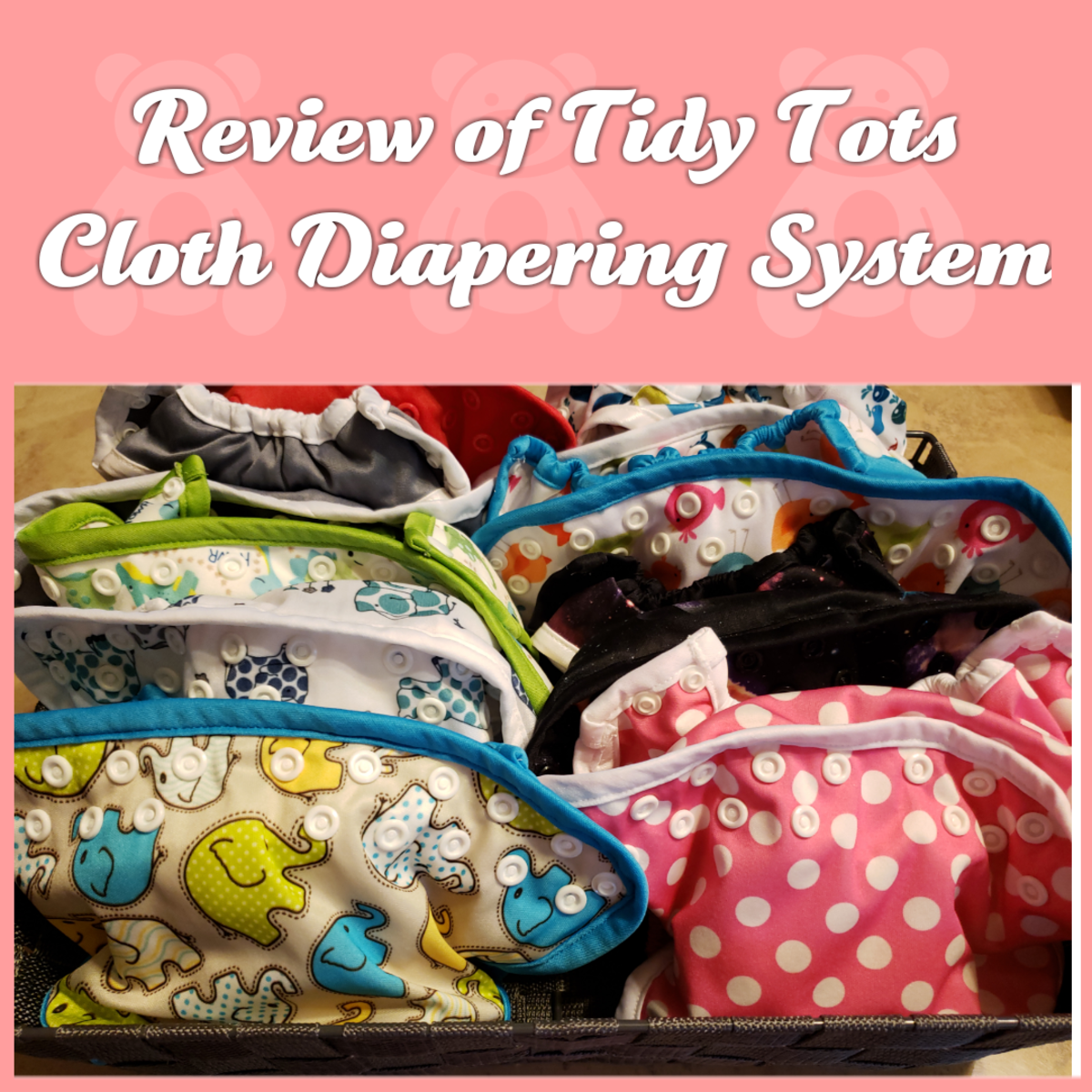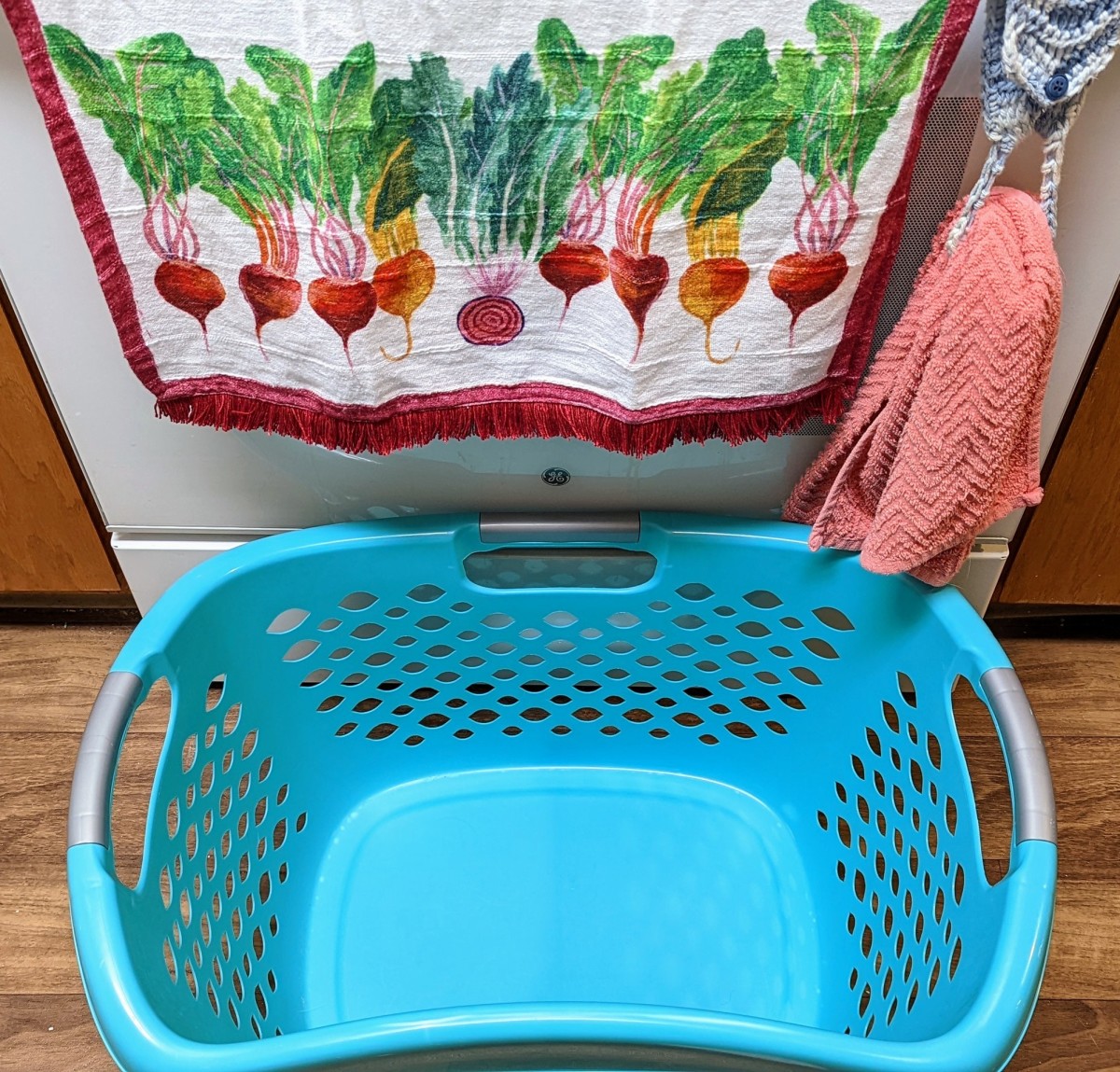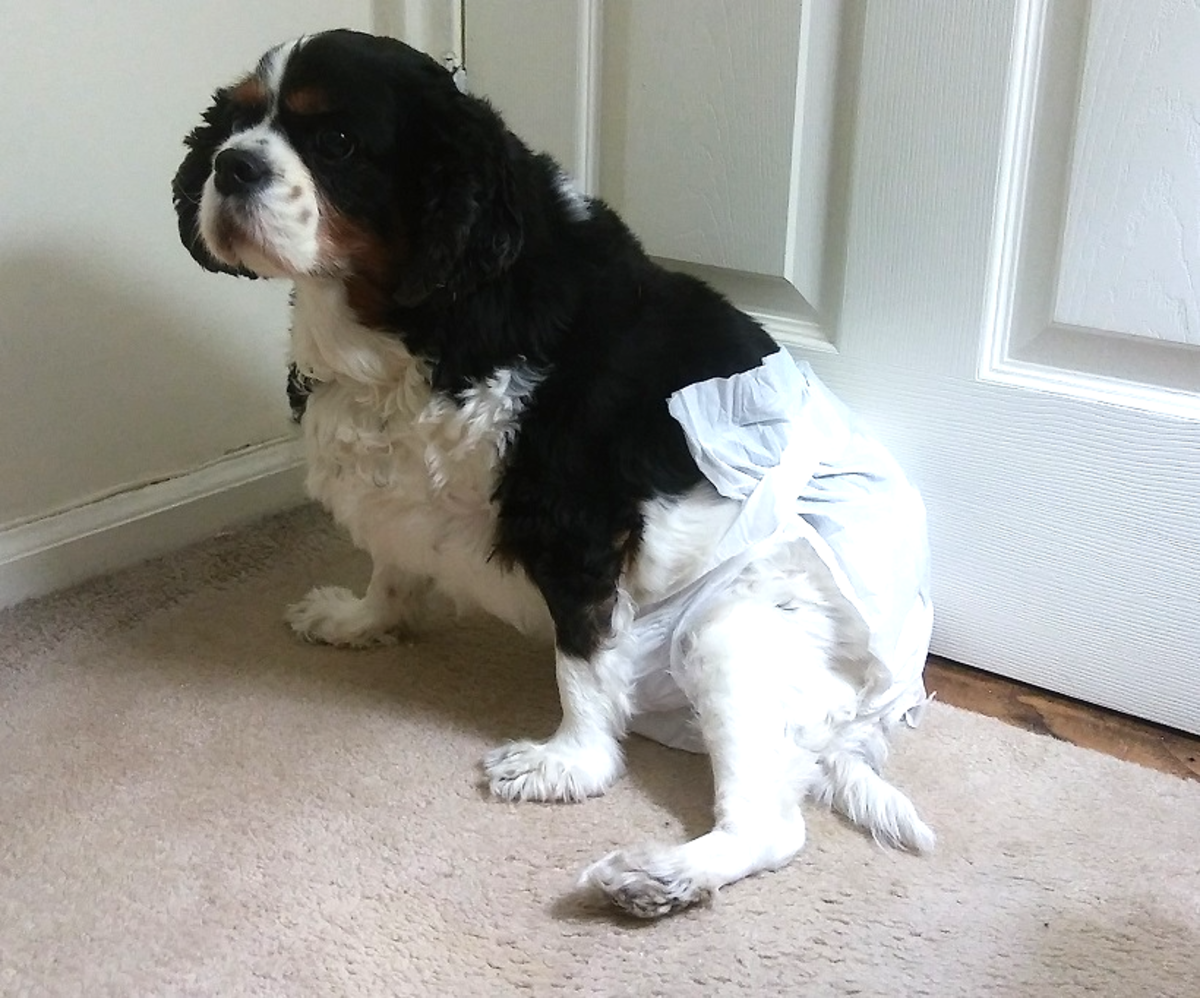The Mommy Wars: Round Five: Cloth vs. Disposable Diapers
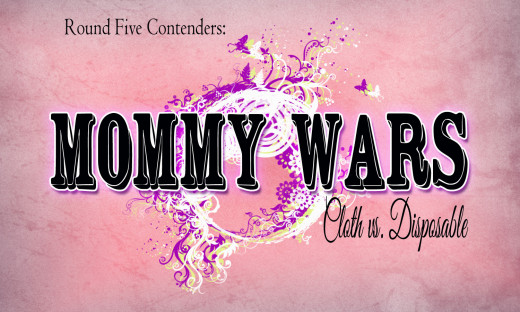
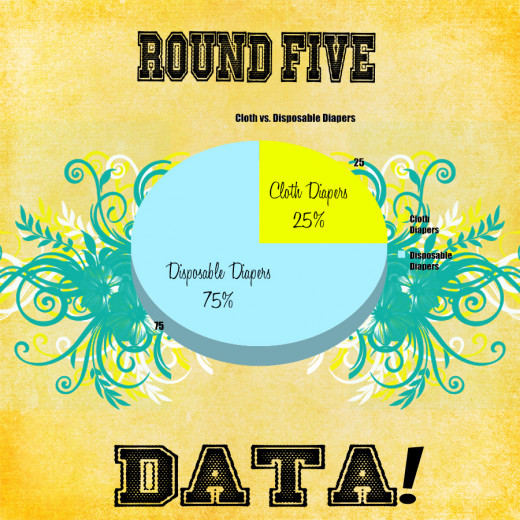
What This Battle Is About
Cloth Diaper - A cloth diaper is a washable, reusable diaper made of any one (or several) types of fabric. A cloth diaper may require a cloth diaper cover.
Disposable Diaper - A folded piece of absorbent material, such as paper or cloth, that is placed between a baby's legs and fastened at the waist to contain excretions.
Conclusion of the Survey
The results of the survey show a heavy lean to the disposable diaper arena in this battle in the Mommy Wars. Looks like most people are using the disposable diapers when covering up their baby's bottoms and catching bodily waste.
Overall, most people feel that cloth diapers are more cost effective for families. It also seems people lean toward the cloth diapering method in order to help protect our environment as cloth diapers are washable and reusable. The main opinion on cloth diapering is that it's cheaper and more time consuming, so depending on the personality of the parent or caregiver, as well as the finances and access to the ability to wash dirty cloth diapers usually makes the decision for parents.
On the other side of the line in this battle, disposable diapers are being heralded for being more convenient, less messy and more available to parents on the go. The main word that describes the reason for using disposable diapers is convenience. In an earlier era, all that we had to cover baby bottoms was cloth diapers, now in the modern world, parents are on the go and they are very interested in easy and fast with the least amount of effort from parents who already have a lot on their plates and in their schedules.
In the end, the disposable diapers wins out on this battle and there are not too many comments in judgement one way or another. It seems most people don't care what the other side does in regards to the diapering methods of parents. The opinions of the diapering method of a family seems to be accepted as 'whatever works' for the individual family's situation.
So, while there are some opinions on saving the environment and doing our part to keep trash out of the landfill, the comments are mostly positive and in support of doing whatever is best for the baby and family circumstances.

Weigh In On The Debate!
Do You Primarily Use Cloth or Disposable Diapers?
Pros and Cons of Cloth Diapers
PROS:
- Cloth diapers are more cost effective, in that, you will get your money's worth. When you can wash and reuse the diapers, it can be less of a hassle on your pocketbook when it comes to finances. Cloth diapers can be an expensive upstart, in buying the starting set of diapers and supplies - but in the end, it may be possible that it will be less expensive not having to replace those diapers every few weeks with a new package.
- Using the method of cloth diapers, parents can feel good about themselves by keeping excess trash out of the landfills. Cloth diapers don't increase the amount of garbage in the trash bins, which can be attributing to reducing your carbon footprint and helping do your part in helping preserve the environment we live in.
- Having cloth diapers on hand will make it possible for the parent to know they won't run out of diapers. It's possible to think that a clean diaper will always be on hand when necessary.
CONS:
- Though the value of the cloth diapers have less impact on the landfill, the washing and detergent in the water system, may also attribute to an impact on the eco-system as well, perhaps just as much as a disposable diaper.
- When out in public, when a child has a dirty diaper in cloth, you can't just throw out the diaper. You actually have to take that dirty diaper home with you - it may not be as convenient as some may say. The diaper quality, regardless of cloth or disposable, can be different depending on the brand, make and model of the diaper. This means, that it's possible that a low quality cloth diaper can be daunting for a mother out in public with said dirty diaper.
- Cloth diapers may be linked to more rashes on the baby bottoms than that of disposable diapers. This may be attributed to the absorbency of a cloth diaper being less than a disposable diaper in some cases, though most people believe that may be due to the quality of the diaper you get in cloth varieties.

Pros and Cons of Disposable Diapers
PROS:
- Convenience is the best opinion of the people who use the disposable diapers on their baby bottoms. Disposable diapers are easy to change with the convenient strips on the sides to pull open and fold up in a cinch. The fast paced world we live in lends it's positive vibes to allow people to lean towards the disposable diapers.
- You can change less diapers when you use disposable, as they diaper is super absorbent when it comes to waste and bodily fluids. This means that babies will be less likely to need a diaper change as the wetness of their diaper doesn't break down the skin or irritate the skin as quickly as a cloth diaper may.
- Disposable diapers can be thrown away and no need to worry about handling bodily waste unless absolutely necessary. People with weak stomachs or less access to washing machines or facilities may find the disposable diaper easier to handle when they can be thrown away after use and don't need to be handled or washed after being removed from baby's bottom.
CONS:
- The expense alone can cause a parent to cringe at the thought of using a disposable diaper on their baby. Over the course of a year, it is estimated that people spend an average of $1300 on disposable diapers. With that estimate, assuming a child is out of diapers by the time they are 2 and a half, it can be roughly $2600-$3000 spent on the use of disposable diapers.
- There are some who believe the dyes and gels used to manufacturer the disposable diapers may cause an adverse reaction to a baby's sensitive skin. Some parents are leery about putting artificial materials that may irritate their child's skin, possibly causing rashes or blisters against the baby's bottom.
- It is well-known that disposable diapers are not the most eco-friendly option in managing the waste of your child's day. Disposable diapers don't decompose, so they keep large amounts of waste in the landfills that don't go away. It is possible, according to the numbers, that disposable diapers attribute to 3 million tons of landfill waste per year.

Comments From Both Sides
- "This is a personal choice. Babies are very resource-demanding. I live in a place with plentiful water, so cloth diapers with all the extra washing are perhaps slightly better then putting diapers in landfills. I do think they're much better for his skin."
- "Better for the environment. Cheaper. CUTE designs - can't beat that! Doesn't sit in a landfill for 500 years (yuck) Cloth diapers don't smell icky like disposables do. NO toxins in cloth diapers like there are in disposables."
- "Disposable. Sensitive skin, eczema, rashes. Disposable are drier. Her comfort is non negotiable. I worked very hard with a pediatric dermatologist to resolve her skin issues."
- "Disposable. The reason is a very selfish one. I don't want to deal with poop."
- "I am way to lazy to wash diapers. Don't imagine the kid cares at all."
- "We used disposable diapers because, after a decent amount of research, the carbon footprint (ie environmental impact) of either choice was found to be the same. This plus a huge advantage in convenience pushed me towards disposable diapers."
- "I had zero interest in trying cloth diapers. Maybe cloth diapers are better for the environment, so I guess that could benefit children in a very abstract way?"
- "We cloth diaper mostly for cost reasons. Choosing disposables affects children because the parents have less money to spend on them. Some children also get rashes from disposables, and some children in cloth potty train early. Also, the tons of trash left by disposable diapers will affect children in the future."
- "We cloth diaper because I think it's better for the environment and for his skin. But we usually use disposables at night and while on out of town trips."
Want to Learn About The Other Battles?
Go back to the homepage of this web series by clicking here.


